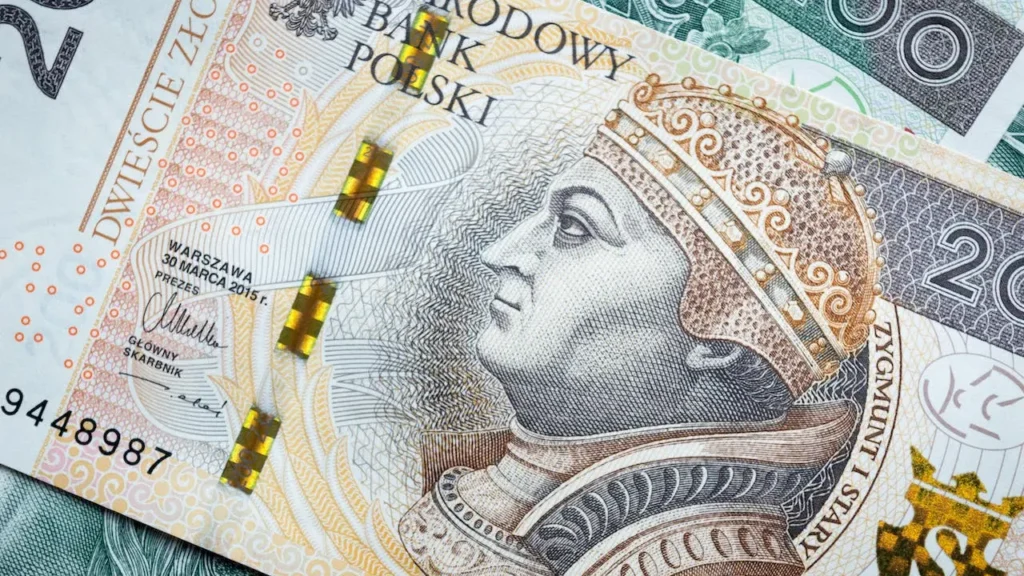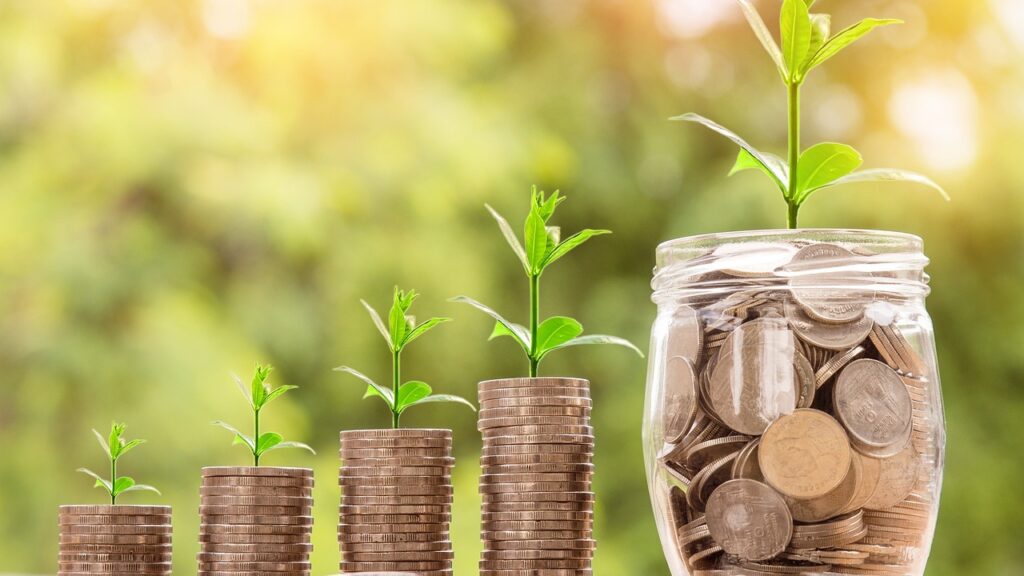Science
Peaks and Valleys of a Lost World: Mapping the Continent Beneath the Ice
28 January 2026

They say money does not bring happiness. So why does our whole life revolve around it? Moreover, we live in a world of credit, without which we would often not be able to maintain the standards of civilized societies.
Money is neither coins nor banknotes, but something much more than that. Money is anything that gives people an idea of the value of certain things in order to exchange goods and services. Money exists in many forms, it is real, that is, we can hold it in our pockets, but more and more often we use money which exists only in the virtual world.
Money enables us to quickly and conveniently compare the value of certain goods. Thanks to it we can easily exchange one thing for another and increase our wealth. In the past, there were many different types of money. In ancient cultures, people paid with shells, animals, cowhide, salt or grains. Kauri shells served as a means of payment for nearly four thousand years throughout Africa and South Asia. In British Uganda, up until the beginning of the 20th century, they were used to pay taxes. To this day, a form of barter exists, for example, in prisons, where cigarettes replace money.
Money, then, allows people to convert everything into what they need.
The Middle Ages were a period of rapid development of trade and coin-minting techniques. The establishment of the first bank in Venice in 1156 initiated the shaping of an institutionalized branch of financial and credit services throughout medieval Europe.
We recommend: Should We Trust Our Intuition? The Power of the Hunch

The common feature of money is that anyone can use it and exchange it for desired products. It turns out that everything we want can be bought. That is why almost each of us wants to have money, and in addition, we want to have as much of it as possible, because such property guarantees us peace and security.
Adam Smith, a Scottish thinker and philosopher, published a monograph in 1776 entitled The Wealth of Nations. The year of publication of this work was also adopted as the date of the birth of modern economics. This thinker was one of the first to divide society into three basic groups: owners, merchants and wage workers. According to him, power should be exercised by the former, however, on the condition that they do not succumb to the pressure of merchants. His book was supposed to protect them from that. Smith argued that people value what they want in return much more than what they offer. If it were the other way around, there would be no exchange at all, because at least one of the parties would prefer to keep what they currently have, i.e. what is more valuable to them. Adam Smith is often called the father of capitalism.
After the French Revolution and the 19th-century liberal reforms in Europe, the remnants of the feudal economy were removed, and after the crisis of the 1930s, an economy based on pure economic liberalism commonly began to give way to a capitalist economy. The internet, its creation and development made it possible to transfer financial operations to the virtual world. Today, each of us can control one’s account on our own after concluding an appropriate agreement with the bank. The introduction of the use of payment cards has also facilitated the conclusion of commercial transactions.
In recent years, credit card addiction has become a form of a new addiction. People have become so fond of spending money that they have lost control of their bills as they spend more and more. A lot of blame can be placed not only on the consumers themselves but also on banks or other institutions, such as chain stores, which easily offer further credit cards. Spending virtual money from the card seems to be a very convenient way, which in the end turns out to be quite a trap.
When we spend money and incur a debt, we do not think that the time will come when we will have to pay it back. We spend more than we earn, and because we can’t stop buying, we assume debts that begin to overwhelm us. According to Finmasters, a financial website, only in the United States more than 20 million people suffer from compulsive, obsessive spending that will sooner or later have a ripple effect on their mental health. Families of people addicted to shopping also suffer because of this. It is a much more serious problem than we think.
We recommend: Creating Analog Alternatives for Children in the Digital Age
It is said that money does not bring happiness, but almost everyone wants to have it. Coins and banknotes also have a symbolic meaning for us. A newly married couple coming out of the church, where they had promised each other to be faithful to the very end, were showered with small coins, which they collected… for good luck. In the past, it was customary to sprinkle newlyweds with grain, which was to symbolize safety, prosperity and fertility. Only the nobility decided to change this rule, which was associated with a clear marking of the social hierarchy. The new custom was to distinguish the newlyweds from the common folk.
But this is not the end of the story of giving money on the occasion of tying the knot. For many years, an envelope has also become an addition or a substitute for a gift for newlyweds. It is customary to put in it not coins, and certainly not small change, but banknotes. If we decide to give someone money, only large denominations count. The same principle also applies in situations where we want to appreciate or reward someone with money.

Money costs us emotions, and not just small ones. Both the lack of them and their sudden influx, for example, as a result of a lottery win, can cause dizziness or even a heart attack.
Fears related to imagining poverty are also the cause of high emotions with a negative undertone. We are afraid of losing money and feel uncertain about what would happen if we suddenly run out of it. When we spend without thinking it through and on impulse, we feel remorse afterwards. On the other hand, trying to invest money reasonably, for example, by taking a loan to buy an apartment, we wonder for a long time whether such a decision will not be too challenging for us. Before we go to the bank, we visualize the worst scenarios, including loss of work or health. All these emotions are directly or indirectly related to money.
We recommend: From Teaching to Collaborative Learning. The Project Method
Morgan Housel, in his book The Psychology of Money. Timeless Lessons on Wealth, Greed and Happiness, writes that in everyday life, people don’t make financial decisions based on mathematical calculations, but on… impulse. It happens that important decisions about spending money are most influenced by an important conversation with someone we value, or an example from our surroundings. If my neighbor managed to make money on this, I will try it too, and maybe I will also succeed. It also happens that it is not so much good investing that leads to wealth, but saving. Sometimes it’s better not to spend money than the other way around. But the problem is that nowadays you can’t live without spending and paying bills. One just needs to know how to do it wisely.
In his book, Housel gives examples of people who managed to put aside a large fortune simply because they regularly invested quite small amounts of money in safe stocks. The author also reminds us that since the dawn of time, only two things have always been the most important for every human being: health and money. And it is in that order. Not for nothing, therefore, by making a toast like our ancestors, we wish ourselves health. And what about money? We wish them not so much to others as, above all, to ourselves.
Housel also points out that to understand the reason for people falling into debt, it is not necessary to analyze the issues related to interest rates, but to look at the problem from the psychological side: to get to know the history of greed, lack of a sense of security and optimism.
The above-mentioned book has been read by more than 20 million readers worldwide, which shows how popular the subject is.
Almost everyone, whether they want to or not, thinks about money. But each of us thinks differently about it. For some people, amassing money is the goal, while for others it is only a means to an end. The most important thing is to know how to deal with money so as not to lose it. We learn this all our lives.
Translation: Marcin Brański
Read the text in Polish: Szczęścia nie dadzą? Psychologia pieniądza a kredyt na życie